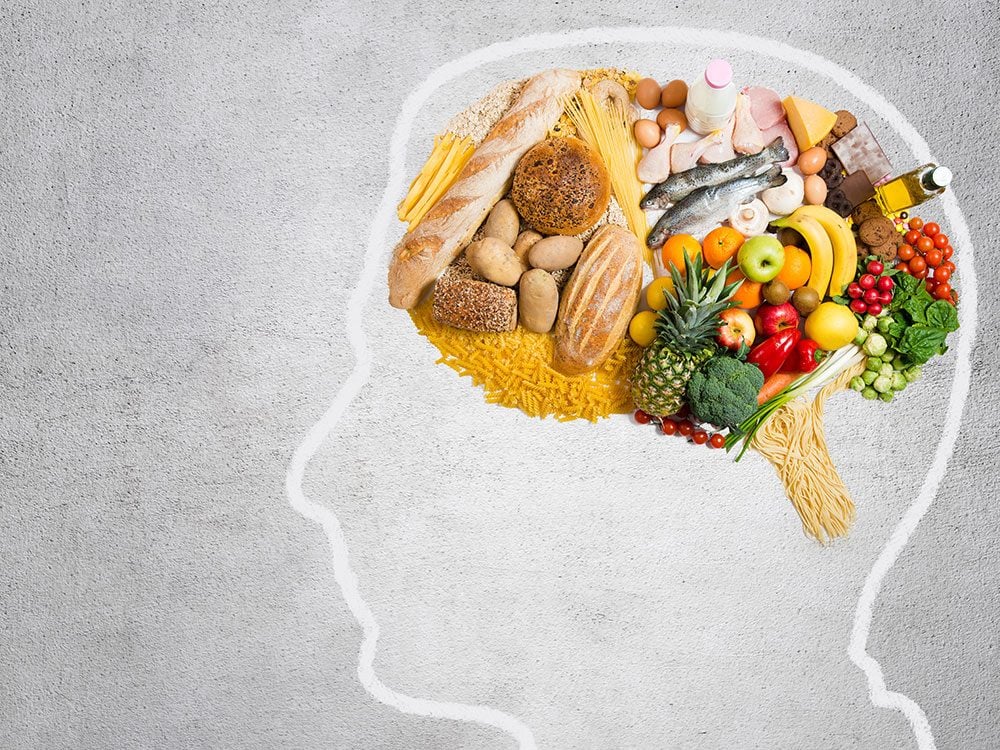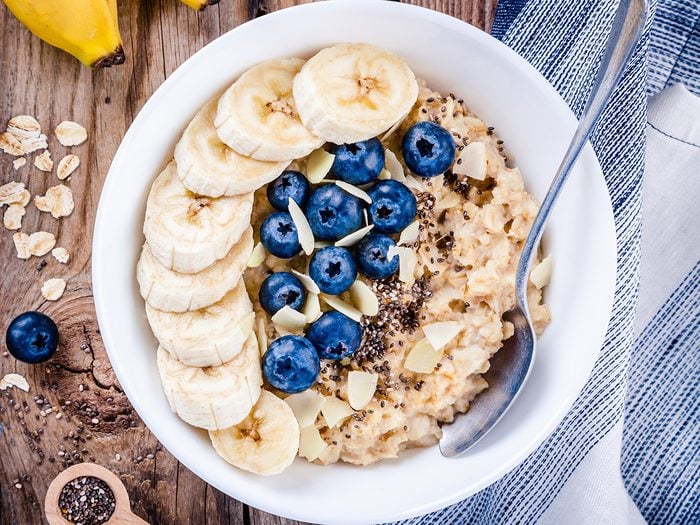
What is the MIND Diet?
The latest diet craze doesn’t offer any miracle foods or too-good-to-be-true guarantees about blasting belly fat. Rather, it promises to slash your risk of Alzheimer’s—and it actually works.
Known as the MIND Diet (short for Mediterranean-DASH Intervention for Neurodegenerative Delay), research has shown it can reduce Alzheimer’s risk by as much as 53 per cent, depending how well you follow it. It’s an encouraging tool for prevention, given that one in three Canadians over the age of 85 suffers from Alzheimer’s or some other form of dementia.
The diet’s eating plan is a combination of the plant food and olive oil-laden Mediterranean diet and the DASH (Dietary Approaches to Stop Hypertension) diet, which is low in saturated fat and sugar. The two diets have already been associated with improving heart health and preventing cancer, but it turns out that, together, they can also do wonders for your brain.
“This kind of eating pattern is beneficial for the entire body,” says Rosie Schwartz, a Toronto-based registered dietitian. She explains that, in order to get the best results for your brain and your overall health, your commitment to a MIND diet meal plan should be lifelong. “The decrease in brain function doesn’t happen overnight. We should be looking at our future now.”

The MIND Diet Meal Plan: Your Weekly Shopping List
Want to protect your cognitive function? Here’s what you need to eat, according to the MIND diet:
- Green leafy vegetables, at least six servings a week
- Other vegetables, at least one serving a day
- Nuts, five servings a week
- Berries, at least two servings a week (Here’s how to pick the best fresh fruit and berries in the produce section.)
- Beans, at least three servings a week
- Whole grains, at least three servings a day
- Fish, one serving a week
- Poultry, two servings a week
- Olive oil, used in all cooking
- Wine, one glass a day
The MIND diet also recommends that you cut red meat consumption to less than four servings a week, cut butter or margarine to less than one tablespoon a day, slash cheese to less than one serving a week, cut pastries or sweets to less than five servings a week and limit fast food to less than one serving a week.
Want to get started? Read on for dietitian Rosie Schwartz’s recommended daily MIND diet meal plan for brain-boosting breakfasts, lunches and dinners!

The MIND Diet: Breakfast Meal Plan
Start your morning with a brain-boosting breakfast of whole-grain cereal, such as steel-cut oats, with nuts and berries. Schwartz says that blueberries, in particular, promote neural health because they’re loaded with an antioxidant called anthocyanins. In fact, all kinds of antioxidants found in berries and other plant foods fight oxidative damage. “And research is showing that Alzheimer’s disease and cognitive decline are linked to oxidative damage,” says Schwartz. When it comes to nuts, their combination of unsaturated fats and fibre are unbeatable for brain health. And whole grains, says Schwartz, “are linked to lower blood pressure and blood sugar regulation,” both of which are important to proper brain functioning.
Discover more high-fibre foods worth adding to your cart.

The MIND Diet: Lunch Meal Plan
For a MIND Diet lunch, try a whole-grain pasta with veggies and grilled salmon, says Schwartz, who suggests throwing in greens such as spinach, as well as fresh herbs, when cooking your pasta sauce. Not only do herbs and spices have high antioxidant content, but they also make food taste delicious, making it that much easier to stick to a MIND Diet meal plan. As a fatty fish, salmon is packed with omega-3s, which are important to brain functions like memory. (Here’s the healthiest fish you can eat.) For an added boost of omega-3s, eat a handful of walnuts as an afternoon snack. “Snacking between meals keeps the blood sugar more stable,” says Schwartz.

The MIND Diet: Dinner Meal Plan
For a dementia-fighting dinner, cook up some quinoa and turn it into a stir-fry, sautéing vegetables, leafy greens and beans in olive oil. (These are the healthiest cooking oils on the market.) Schwartz says those leafy greens are packed with vitamins, antioxidants and minerals that benefit the brain. When it comes to the olive oil, choose an extra-virgin variety, says Schwartz, who explains that it has monounsaturated fat and polyphenols that help lower cholesterol. Plus, it’s anti-inflammatory “and research shows that cognitive decline is related to inflammation in the brain.” Wash it all down with a glass of wine—red or white—which is proven to improve good cholesterol levels.
Now that you’re familiar with the MIND Diet meal plan, learn how to spot the early signs of dementia.